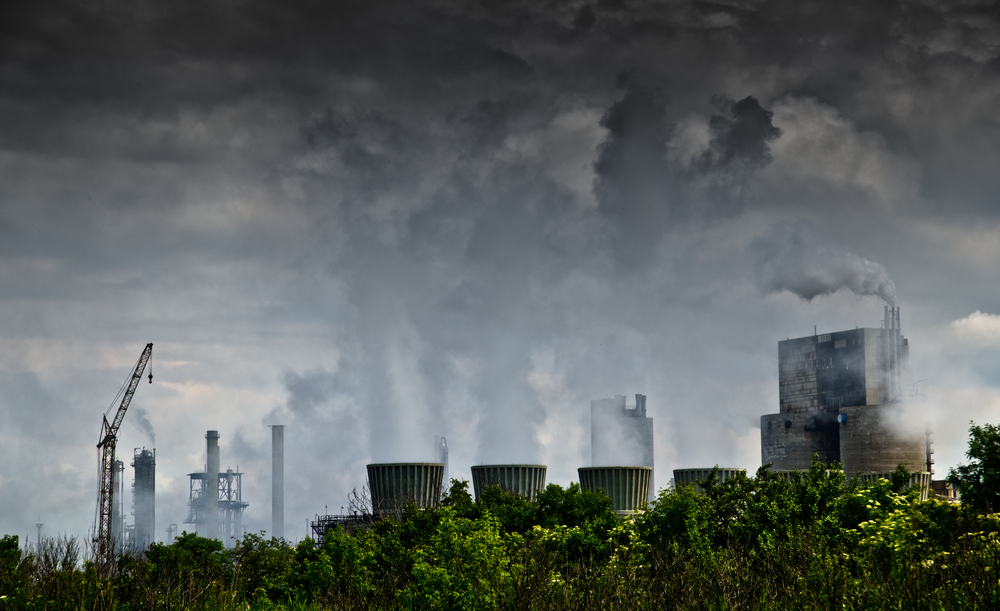A retreat from coal means Britain is leading the G20 on decarbonisation, but renewables growth has stalled and it is in danger of missing climate targets if today's Clean Energy Plan fails to tackle transport and heat emissions, argues Corinna Hornwall of PwC
When it comes to spearheading clean growth, the UK is not only firmly on track but is leading the G20 in terms of decarbonisation, according to PwC’s initial Low Carbon Economy Index analysis.
In its ninth year, the index tracks the progress that G20 countries are making in decarbonising their economies. And while the full global report will launch at the end of October, results so far reveal that the UK reduced its carbon intensity, or emissions per million dollars of GDP, by 7.7% in 2016. This rate is three times the EU average (2.3%) and almost triple the global average (2.6%).
Globally, a reduction in carbon intensity of 6.3% per year is needed to prevent global warming from exceeding 2C at the end of the century. Two degrees is thought to be the threshold beyond which risks from climate change become very high, so a step-change is needed to meet this. The UK, along with China, are the only countries in 2016 to have met this target.
The first country to use coal for electricity in the industrial revolution, the UK is weaning itself off this carbon-intensive fuel
Even though the policy environment has been very uncertain under Brexit, the energy sector has made significant progress. Energy-related emissions fell by 6% in 2016 whilst GDP grew steadily at 1.8%. Energy demand fell by 1.4%, mainly because of efficiency improvements and the growing role of the service sector in the UK economy.
The record-breaking reduction in coal consumption of 53% is another key driver. As the first country to use coal for electricity during the industrial revolution, the UK is now weaning off this carbon-intensive fuel: It now accounts for only 8% of energy consumption, compared to 23% five years ago. The UK Government’s plan to shut down all coal power stations by 2025 has also had an impact with three coal mines shut last year. There has also been increasing shift from coal to gas. As a result coal imports fell by almost two-thirds, from 23 million tonnes in 2015 to 8 million tonnes in 2016, while gas imports and domestic gas production have risen by 12%, partly due to low global gas prices.

Surprisingly, an increase in renewables has not played a large role in achieving these numbers, as renewables consumption remained stable at 12.5%. While solar’s increase of 36% raised its share from 1.1% to 1.6% in the energy mix and exceeded coal generation in April-September 2016, both wind and hydro decreased due to low wind speeds and rainfall.
The UK performance in 2016 has been impressive and sets an example for other countries looking to achieve a quick-win by moving away from coal. As the transition from coal has already been completed, the UK now needs to identify emissions reduction opportunities elsewhere, for instance in renewables and energy efficiency, which is not easy.
The UK still has a long way to go to move its energy consumption from fossil fuels (which account for 81%) to renewable sources and has a lower rate of renewable energy consumption compared to other European countries, such as Germany, Italy and Spain.

While the power sector has made important progress, similar drastic changes are crucial in the transport and heating sectors if the UK is to meet its target of cutting its carbon emissions by 57% by 2030 compared to 1990.
Latest figures show that transport accounts for 30% of the UK’s total energy consumption, but there is hope of progress with the announced ban on sales of petrol and diesel cars in 2040. Government policy, and the falling cost of batteries, have also led businesses to switch on to this, with Volvo and Jaguar Land Rover among carmakers to pledge only to produce electric or hybrid vehicles from 2019/2020.
As the UK leaves the EU, maintaining strong policy signals on tackling carbon emissions will be critical for business
In renewable energy, the government’s clean power auction earlier this month showed offshore wind costs halving in the past two years. The implications of this is that the offshore wind sector has significant potential to provide power generation at a large scale which is cheaper than current, more carbon-intensive technologies. This challenges the idea that renewables are more expensive - a move that could prove beneficial for future UK renewable power generation and potentially create job and economic opportunities as the UK has the largest offshore wind capacity in the world.
It’s also important to note that the UK’s performance isn’t a one-off: we have recorded the highest average decarbonisation rate (3.7%) since 2000. Structural changes in the economy, through a shift from energy-intensive industry to services have also played a role in this.
In the current uncertain policy environment, it’s still unclear if Brexit will impact the low carbon transition.

British businesses have been subject to a range of energy and climate policies and targets which have been derived from EU Directives. These schemes include the EU Emissions Trading Scheme, which covers 40% of UK carbon emissions, the Energy Savings Opportunity Scheme (ESOS), the Large Combustion Plant Directive (LCPD) and renewable energy targets. As the UK leaves the EU, maintaining strong policy signals on tackling carbon emissions will be critical for businesses making decisions in the coming years.
The Fifth Carbon Budget, which was legislated after the referendum last June and covers the period between 2028-2032, has continued to show high UK climate ambitions. Hopefully, the Government’s Clean Growth Plan can provide further clarity and direction on the future of UK energy and climate policy. The policies set in the next few years will be key in providing the environment for investors and consumers to drive the low-carbon transition.
Corinna Hornwall is an environmental economist working in PwC’s sustainability and climate change team. Her areas of work include climate change policy, risks, low-emission investment and climate- resilient development.

